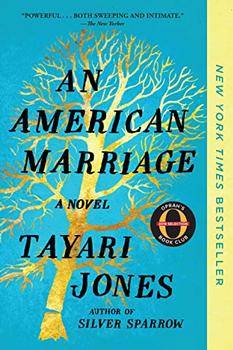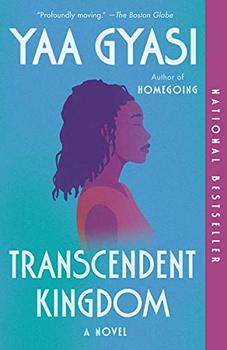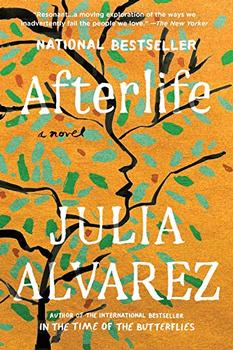Summary | Excerpt | Reading Guide | Discuss | Reviews | Beyond the book | Read-Alikes | Genres & Themes | Author Bio

Celestial Davenport and Roy Othaniel Hamilton were still navigating the contours of their new marriage one year in, and you could argue that the fault lines were already beginning to show. But Roy thought differently. "I believed that our marriage was a fine-spun tapestry, fragile but fixable. We tore it often and mended it again, always with a silken thread, lovely but sure to give way again." Celestial and Roy, graduates of historically black schools, are an upwardly mobile Atlanta couple, and at the novel's outset their lives lie ahead sparkling with promise. "We are not your garden-variety bush Atlanta Negroes where the husband goes to bed with his laptop under his pillow and the wife dreams about her blue box jewelry," Roy reminds us. "I was young, hungry, and on the come-up. Celestial was an artist, intense and gorgeous."
It is against this landscape that life throws the couple a curveball. At a routine stay at a motel in Roy's native Louisiana, a white woman, mistaking one black face for another, accuses Roy of rape. And just like that, the marriage is put on hold. Roy gets twelve years in prison – "we would be forty-three when he is released", Celestial points out. The marriage is shattered.
As expected, from this point on Roy and Celestial's lives spool forward at different speeds. Roy is pretty much frozen in place, spending most of his time writing to a wife who is trying to come to terms with what she needs to do next. Many wives wait for their husbands, Roy has noticed, but then Celestial is not just another wife. Her earlier doubts about the marriage resurface, "Til death do us part" is unreasonable, a recipe for failure, she now believes.
Tayari Jones achingly explores what happens as our individual selves, slowly evolving over time, leave a marriage behind. A good marriage requires constant recalibration, embracing slowly changing personalities. But what if some of that change occurs at a remove? Neither Roy nor Celestial have any idea what the other is like now. All Roy has is hope, and in that hope he builds a glorified picture of his wife. Celestial, on the other hand, pieces together her artist career and finds support in an old friend, Dre.
In chapters alternately narrated by Roy, Celestial and Dre, An American Marriage challenges the reader to question what we buy into when we say "I do." Do we promise unending loyalty no matter what, even if that outcome is uncertain? As Celestial dithers, she also grapples with guilt over her changed self.
The title is particularly on point. Roy's only crime is to be a "a black man in the wrong place at the wrong time. This is basic," Jones writes. After all, in America, being a black man can mean that the chances you will be incarcerated is five times more than if you are a white man. Against this context, it is America to blame for the gradual fraying of Roy's and Celestial marriage. That result is the collateral damage from a society where systemic bias is ingrained. This, in other words, is the story of an American marriage.
Jones also teases apart the concept of class: "All my life I have been helped by programs like Head Start when I was 5 and Upward Bound all the way through," Roy explains, but Celestial grew up with more comforts. It's the slightest of disparities but one that gnaws at the marrow regardless.
At times the characters indulge in a little too much navel-gazing and seem to make the same points about marriage over and over again. These veer dangerously close to reading like platitudes: "Marriage is between two people. There is no studio audience." and "Human emotion is beyond comprehension and smooth and uninterrupted, like an orb made of blown glass." It is the novel's strength that you see the story from all three points of view, although I suspect readers will probably pick a favorite to root for.
All told, An American Marriage is a memorable dissection of one of society's most venerable institutions. Hard work or not, Jones brilliantly shows us just how easy it is for things to go awry in the blink of an eye, even in a happy marriage let alone in a less-than-perfect one.
![]() This review was originally published in The BookBrowse Review in February 2018, and has been updated for the
March 2019 edition.
Click here to go to this issue.
This review was originally published in The BookBrowse Review in February 2018, and has been updated for the
March 2019 edition.
Click here to go to this issue.

If you liked An American Marriage, try these:

by Yaa Gyasi
Published 2021
Yaa Gyasi's stunning follow-up to her acclaimed national bestseller Homegoing is a powerful, raw, intimate, deeply layered novel about a Ghanaian family in Alabama.

by Julia Alvarez
Published 2021
The first novel for adults in almost fifteen years from the internationally bestselling author of In the Time of the Butterflies follows Antonia Vega, a retired English professor struggling to deal with the death of her husband, the appearance of a pregnant undocumented teen on her doorstep, and the disappearance of her sister.
Your guide toexceptional books
BookBrowse seeks out and recommends the best in contemporary fiction and nonfiction—books that not only engage and entertain but also deepen our understanding of ourselves and the world around us.